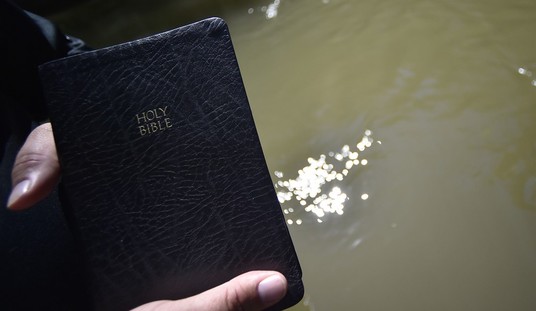Russia appears to be taking serious moves to combat the “radicalization” of Muslims within its border.
Recent pro-Islamic reports are complaining that Russia is banning the Islamic hijab—the headdress Islamic law requires Muslim women to wear—and, perhaps even more decisively, key Islamic scriptures, on the charge that they incite terrorism.
In the words of Arabic news site Elaph, “Russia is witnessing a relentless war on the hijab. It began in a limited manner but has grown in strength, prompting great concern among Russia’s Muslims.”
The report continues by saying that women wearing the hijab are being “harassed” especially in the “big cities”; that they are encountering difficulties getting jobs and being “subject to embarrassing situations in public areas and transportation. The situation has gotten to the point that even educational institutions, including universities, have issued decrees banning the wearing of the hijab altogether.”
Moscow’s Pirogov Russian National Research Medical University appears mentioned as one of the schools to ban the donning of the hijab on its premises, specifically, last September (the New York Times bemoaned an earlier instance of anti-hijab sentiment in 2013).
While this move against the hijab may appear as discriminatory against religious freedom, the flipside to all this—which perhaps Russia, with its significant Muslim population is aware of—is that, wherever the Islamic hijab proliferates, so too does Islamic supremacism and terrorism. Tawfik Hamid, a former aspiring Islamic jihadi, says that “the proliferation of the hijab is strongly correlated with increased terrorism…. Terrorism became much more frequent in such societies as Indonesia, Egypt, Algeria, and the U.K. after the hijab became prevalent among Muslim women living in those communities.”
The reason for this correlation is clear: strict Islamic Sharia commands jihad (“terrorism”) against unbelievers just as it commands Muslim women to don the hijab. Where one proliferates—evincing adherence to Sharia—so too will the other naturally follow.
But Russia’s growing list of Islamic books to be banned on the charge that they incite terrorism is perhaps more significant. Elaph continues: “This move [ban on the hijab] coincides with a growing number of religious books to be prohibited, with dozens of them being placed on the terrorist list, including Sahih Bukhari and numerous booklets containing verses from the Koran and sayings of the prophet.”
According to Apastovsk district RT prosecutors, Sahih Bukhari is being targeted because it promotes “exclusivity of one of the world’s religions,” namely Islam, or, in the words of a senior assistant to the prosecutor of Tatarstan Ruslan Galliev, it promotes “a militant Islam” which “arouses ethnic, religious enmity.”
This is significant. While one may expect modern day books and tracts written by the likes of al-Qaeda or the Islamic State to be banned, Sahih Bukhari, compiled in the 9th century, is fundamental to Sunni Islam (that is, 90 percent of the world’s Muslims). Indeed, the nine-volume book is often seen as second in importance only to the Koran itself and contains the most authentic sayings attributed to the Muslim prophet Muhammad.
And yet, that this important scripture promotes “exclusivity”—that is, supremacism—and “arouses ethnic, religious enmity”—that is, “terrorism”—should not be missed on anyone. The following few statements contained in Sahih Bukhari and attributed to the prophet of Islam speak for themselves. Muhammad said:
- “I have been sent with the shortest expressions bearing the widest meanings [tawriya, Islamic deception], and I have been made victorious with terror (cast in the hearts of the enemy).”
- “Whoever changed his Islamic religion [“apostates”], then kill him.”… KEEP READING










Join the conversation as a VIP Member